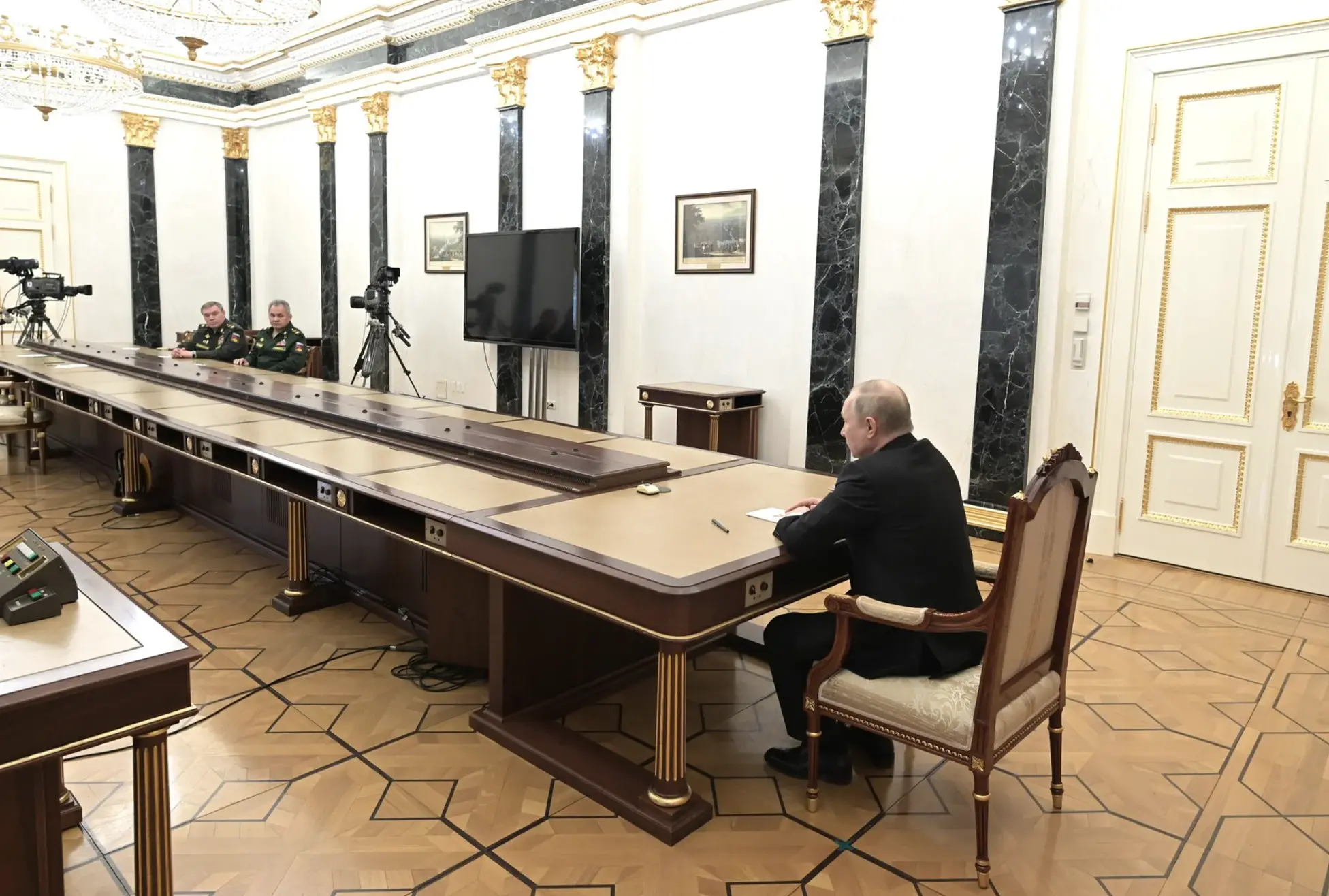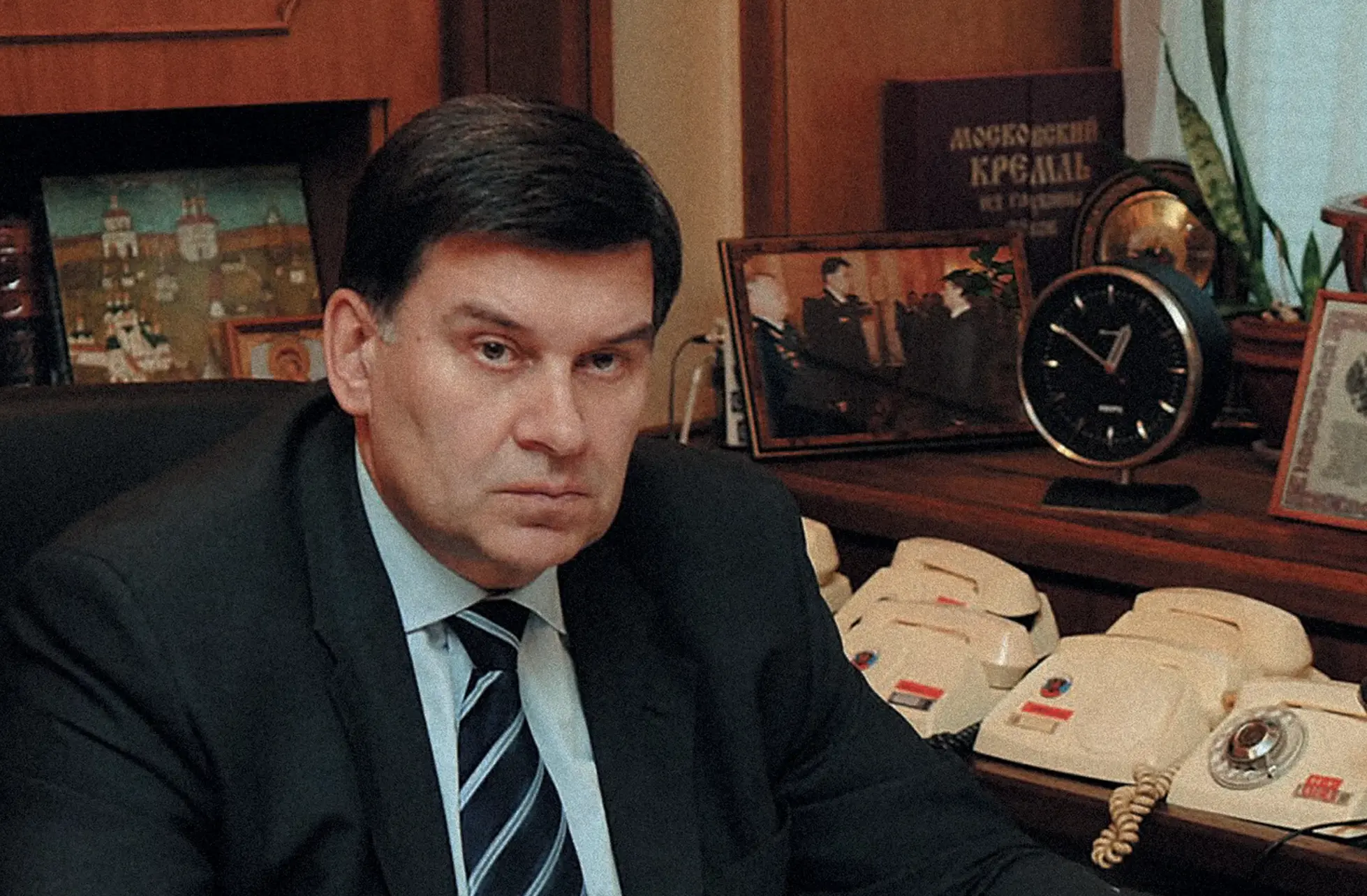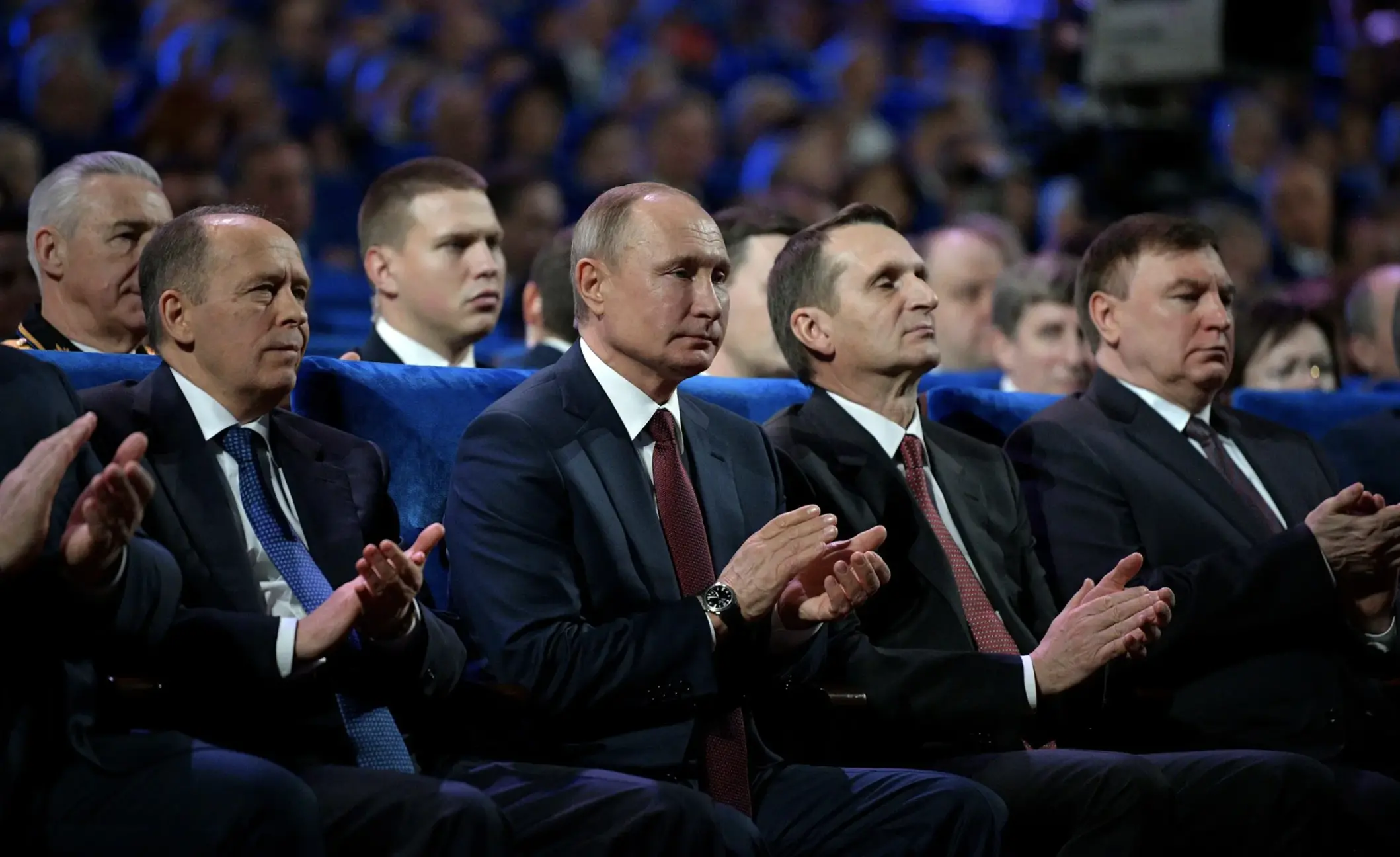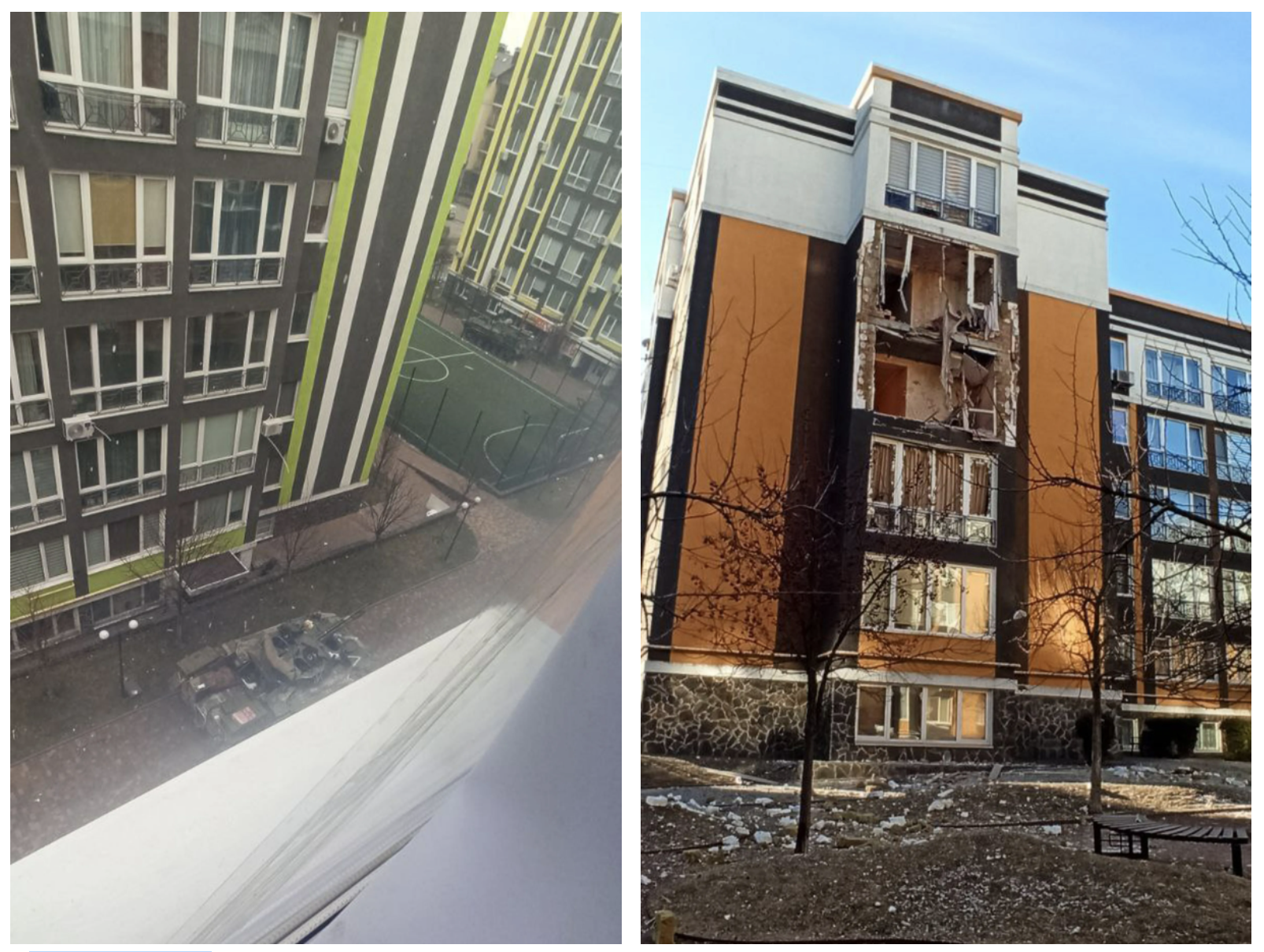The war in Ukraine has become a protracted conflict. But no matter how events develop further, it is already obvious that the initial plan for the invasion of Ukraine by the Russian army has failed. In the third month of the war, the Russian armed forces did not achieve any of the aims originally stated by Vladimir Putin.
The Russian army failed to quickly seize Kyiv, Chernihiv, Kharkiv, and other major cities and, after suffering heavy losses, was forced to retreat. After that, the "second phase of the special operation" was announced, which implied reaching the administrative borders of Luhansk and Donetsk regions, as well as capturing the south of Ukraine as far as Transnistria. Judging by the news from the front (including the information provided by propagandists), this phase is also proceeding with difficulty. In some areas, the Russian army is advancing slowly, but with heavy losses; in others, such as in the Kharkiv region, the Ukrainian Armed Forces (UAF) have pushed the Russian army back almost to the border.
Despite the obvious failures on the front, the Russian military leadership keeps repeating that everything is going according to plan. But this is obviously not the case. "The task was set as follows: take Mariupol in three days, Kyiv in five," says a Russian special forces officer. All my sources agree: the Russian authorities were confident that the Russian army would meet no serious resistance. "You saw that footage of the burned down autozaks [police buses], didn't you? They really thought they would take everything quickly and then disperse the crowd with police batons," says a special forces officer.

As a nonprofit journalism organization, we depend on your support to fund coverage of global conflicts. Help us continue funding the hard costs of in-depth coverage of the Ukraine invasion—including travel, hostile environment safety training, and the increased security expenses that arise from reporting in war zones.
How could they be so sure? "As ridiculous as it sounds, the decision to go to war was made by the most uninformed person that could possibly have taken it. The president," my source sneers.
Read this article to the end and you will find out:
- what FSB intelligence reported to Putin before the war began, and why the "KGB men" are now "out for the blood" of their Fifth Service colleagues;
- how the FSB was "selling air" about the situation in Ukraine;
- why the Russian president believed that victory would come easy to him;
- how the Kremlin withdrew from reality altogether.
Did Putin stay in touch with reality?
Austrian Chancellor Karl Nehammer is so far the only EU leader Vladimir Putin has seen in person since the war began. The meeting took place in mid-April in Moscow. Nehammer later told the American NBC channel about its outcome: "I think he is now in his own war logic. He doesn’t trust the international community. He blames Ukrainians for genocide in the Donbas region. So he is now in his world… But I think he believes he is winning the war."
Nehummer's phrase about Putin's "world of his own" echoes almost verbatim Angela Merkel's words to Barack Obama in 2014 after the annexation of Crimea. She said Putin had lost touch with reality and was living in “another world.”
Many sources, including those who know him personally, speak of Putin's "other world," and it is not so much a matter of mental health (although some of our sources have concerns about this, too) as of the president's physical and informational isolation.
During the pandemic, Putin reduced the number of trips and face-to-face meetings, conducting most of the events online. Before each face-to-face meeting with the president, people were forced to stay locked up for two weeks under strict quarantine. Even press secretary Dmitry Peskov mostly saw his boss on screen.
"He saw no more than five people, the closest circle, if any, during that period. It was very hard to work, we were the last ones to learn about decisions," complained one Kremlin official. "He had a limited number of people with him all the time — adjutants who kept track of his schedule, of his time, to the point of waking him up in the morning. There is a place to live in Novo-Ogaryovo [the president's residence]. The others are not needed now," confirmed the sources of the BBC Russian Service.

This order of things is in fact still in place: during the war, Putin appeared in public only a handful of times. This isolation made it almost impossible for Putin, already distrustful and suspicious, to convey an alternative point of view: one that didn't coincide with the views of the special services. As a result, in making the decision to invade Ukraine, Putin relied mostly on reports from his former colleagues, including the "big Fifth service" of the FSB (it is called like that in order to distinguish it from the fifth services within the smaller units of the FSB).
Who works in the Fifth service and what did it report to Putin before the war in Ukraine?
"Air Sellers"
The Fifth Service is one of the most closed services in the FSB, sometimes called intelligence because it specializes in gathering information within Russia and the former Soviet Union. The key unit of the Service is the Department of Operational Information, which includes various departments specializing in their areas and a department that deals with Ukraine.
The Fifth Service is headed by the influential General Sergey Beseda. His first deputy and at the same time head of the Department is Georgy Grishaev. It was he and his deputy Dmitry Milyutin who were directly responsible for the information that was reported to the Russian leadership on the situation in Ukraine (although, as my sources stipulate, the briefings are written by operational officers — the fault of the leadership is that they checked nothing and accepted at face value any information they deemed convenient).

At the beginning of the war, many media outlets even reported that Beseda and his colleagues were arrested because their information about Ukraine did not correspond to reality. However, four sources told us that this was not the case. "Beseda is untouchable. There are several services in the FSB whose heads are equal to the deputy director: for example, those are the fifth service and the first (engaged in counterintelligence. — Ed.). People like that don't end up in jail," says an acquaintance of Beseda.
"They (FSB) were making things up, misinterpreting, and sometimes fantasizing, and the leadership was happy to believe it."
A member of a special forces unit
Inside the FSB, no one hides that there are big questions over the work of the Fifth service. Moreover, many fellow officers are thirsty for the blood of their colleagues from that service and are waiting for criminal cases to be opened against them. "They are 'air sellers'," the former FSB officer says of his colleagues.
"They were making things up, misinterpreting, and sometimes fantasizing, and the leadership was happy to believe it," echoes another former employee. "For example, they wrote that the regions of Ukraine did not have any real connection with the Kyiv government and it would take only a nudge to make those regions 'run' toward Russia."
"The level of professionalism there is worthless. People who had no idea how to work were sent there. Not everyone agreed to join the department because it was something of a swamp. We have encountered cases where we brought information on one of the Commonwealth of Independent States (CIS) countries to the Beseda service, and the relevant employees did not recognize the names of the main officials of that country, they did not understand who those people were. We had to explain all that to them," says an FSB officer.
Fools and corrupt officials as sources of information
For many years, the Ukrainian direction was not considered a priority in the FSB. For many reasons. First, because many members of the Russian and Ukrainian special services were, in fact, yesterday's classmates and colleagues. Second, because the Russian authorities always looked at Ukraine as a province of their metropolis, and no one in the FSB made much effort to understand what was really going on in the neighboring country. "All political bets were placed on Yanukovich, and no one paid attention to the fact that by 2013 almost all of Ukraine hated him — for his corruption and stupidity. His overthrow and flight came as a surprise to the leadership," says a former FSB official.
It would seem that after Euromaidan, the FSB should have drawn conclusions and changed its approach to assessing the situation in Ukraine. But, as my sources say, things only got worse.
The euphoria that followed the rapid annexation of Crimea and the relatively easy victories of the Russian army in Donbas (primarily the defeat of the Ukrainian army at Debaltseve and Ilovaisk) created the impression that everything was under control. At the same time, no one tried to understand what was really going on in Ukrainian society over the past eight years.
The FSB's main informants about the situation inside Ukraine were fugitive officials, security officials, and businessmen from Viktor Yanukovich's team, says a former employee of one of the Russian special services. Until the beginning of the war in February of this year, the key figure among them was Vladimir Sivkovich, a former KGB military counterintelligence officer who served in Potsdam, Germany, during the Soviet era. Sivkovich has held high positions in Ukrainian government agencies. He served as deputy secretary of the National Security and Defense Council from 2010 to 2014.
Former Party of Regions MP (Viktor Yanukovych was its leader) Taras Chornovil said in 2014 that it was Sivkovych who made the decision to beat up students on the Maidan in November 2013, after which peaceful protests turned into clashes between protesters and security forces. After Yanukovych fled Kyiv, Sivkovich also fled to Russia, where he received state protection, an office in central Moscow, and a staff to gather information about Ukraine.
"You have to understand the psychology of these people [the Yanukovych team members who fled to Russia]. They fed their fantasies to Beseda in order, first, to justify their existence and to use the budgets they supposedly spent on "agents". Second, their main goal was to return to Ukraine; they had already planned out what positions they would take in the future, and all their information was adjusted to fit the favorable picture. Third, these people lived in the realities of 2014 and did not want to understand that in eight years everything had changed in Ukraine. And Beseda happily carried all this information to the top," says a former FSB officer.
But not only and not so much was Putin deceived, as he himself was happy to be deceived.
Negative Selection
"What can we say about Beseda if the FSB director himself can't afford to report to the leadership what the leadership doesn't want to hear. Everyone in the FSB has long been very cautious in terms of initiative and informing. Even if serious information came in, they preferred to put it in a safe and forget it until the leadership remembered and asked, that is until there was a 'political necessity,'" says an FSB official.
"You have to report what the leadership wants to hear, otherwise you won't get promoted. What's more, there could be problems," confirms another security service source.
In theory, information was supposed to flow to Putin from various sources, such as the Fifth Service of the FSB and the Foreign Intelligence Service. But in practice it didn't work, my sources say. "How does it work in practice? Let's say contradictory information comes through the two lines. The supervisor calls the people in charge and demands: "You claim that this shitty journalist is a CIA agent, and you claim that he's a Russian patriot. Sort it out!" And everyone understands how to correct it — just the way the boss thinks. No one will insist on his own opinion," a former FSB officer describes a hypothetical situation.
In psychology, such cognitive distortion is called confirmation bias, when a person chooses only the information that agrees with his point of view.
The consequence of this cognitive distortion is negative personnel selection. The filters for selecting operatives stopped working a long time ago. The leadership of both the FSB and the country prefers "executive morons," as my sources call them. And the "executive morons," in turn, recruit others like them.
Vigilante Corporation
An outside observer can hardly imagine the extent of the "executive morons'" presence in the various spheres of life of Russians. As my security services source once joked: "Putin continues to work as director of the FSB, only under the cover of the president of Russia" (Putin himself joked about this).
The FSB infiltrates all government agencies in the country. Police chiefs, judges, governors, ministers, presidential administration officials, top managers of state-owned companies, university rectors — all candidates for these positions are approved by the FSB. And not just coordination: in all of these agencies, in one form or another, there are representatives of the "kontora" (as the law enforcement community calls the FSB). They are present either as employees on secondment or as agents.
This widespread presence does not mean that the security services know everything, see everything and hear everything. Their ubiquity does not increase their own effectiveness, nor the effectiveness of the agencies and companies in which they are embedded. However, their ubiquity does shape the general mentality: everyone is forced to make decisions with an eye to the opinions of the FSB representatives, while the latter are forced to make decisions based on their management's opinion.
Russia is ruled by elderly Chekists. For example, the median age of the highest authorities in Russia, the Security Council, is 65. It is important to understand what is in the minds of these people to understand how they could have made a disastrous decision to attack a once sister state.
"A couple of weeks before the U.S. aerial bombing of Yugoslavia began, we had a session to tap into Secretary Albright's subconscious. In Madame Albright's mind, we discovered a pathological hatred of the Slavs."
The Federal Protective Service (FSO) General Boris Ratnikov
In the 15 years that I have been engaged in investigative journalism, I have more than once talked, argued, and drank with various representatives of the Russian special services. Among them were quite a few people of Putin's age and even some who had served with him and socialized with him in Germany. It is impossible to paint all of them with a broad brush, but they were all strikingly united by one dangerous malaise — the Versailles syndrome resulting from the collapse of the Soviet Union. Back in 2005, Putin called it "the greatest geopolitical catastrophe of the 20th century."
That said, I hardly ever met any communists among them. Most of them (but it's important to stress that not all of them) accepted the new capitalist opportunities with great pleasure and became owners of billion-dollar fortunes. They hid party membership cards but kept busts of Dzerzhinsky in their offices. They hung Orthodox icons in the corner.
The Versailles syndrome fueled a sense of revenge for the terrible geopolitical defeat inflicted on them by Washington, London, and the entire collective West. And that thirst for revenge grew along with oil prices.
From the 21st century they took only what allowed them to make money or produce weapons, but mentally they continued to live in the same offices of the 1970s and 1980s — with tea in podstakanniks [traditional Russian tea glass holders] and red carpets in the corridors — and they looked at the world the same way: there was them, there was us, and in the middle were buffer zones. I once had a drink with a former high-ranking official and a colleague of Putin's from the KGB. We met in a surprising way: I wrote about a waste deposit near Moscow that was poisoning the air for local residents, and he had land plots in the area. So in the confrontation between the waste deposit owners and environmental activists, he supported the latter.
And so we sat at the table with the activists, and he made a toast warning against active coverage of the waste deposit problem on social networks because these social networks are monitored by the CIA in order to create spots of tension in Russia. As we listened with our mouths open, he ended his toast with a story about how his colleagues had once intercepted and shown him former CIA director Allen Dulles' plan for the collapse of the USSR. "The Dulles plan is a myth, a conspiracy theory," I tried to object. In response, he looked at me the way people who have comprehended the major mysteries of this world look at naive fools.
I would not have told this story if, firstly, this man had not once held the highest positions in the Russian state and if, secondly, his colleagues — those who continue to lead Russia and make decisions to wipe Ukrainian cities off the face of the earth — did not think the same way as he did. For example, Security Council Secretary Nikolai Patrushev said in 2015 that the U.S. "would very much like to have no Russia at all," "because we have enormous wealth. And the Americans think we own it illegally and undeservedly because, in their opinion, we don't use it the way we should. You probably remember Madeleine Albright, former US Secretary of State, saying that neither the Far East nor Siberia belongs to Russia."
That would be okay if Madeleine Albright truly said such a thing. The phrase itself was born somewhere in the endless forums devoted to conspiracy theories on the collapse of Russia and then was replicated by the FSO Major General Boris Ratnikov, who claimed in 2006 in an interview to Rossiyskaya Gazeta that "A couple of weeks before the U.S. air bombing of Yugoslavia began, we had a connect session to tap into Secretary Albright's subconscious. I won't retell her thoughts in detail ... We found pathological hatred towards Slavs in the thoughts of Madame Albright. And she was also outraged that Russia has the largest mineral wealth in the world."
One could have laughed at all this if these people had not made the decisions about the war that led to the deaths of tens of thousands of people today.

One should not think that the leader of their corporation, Vladimir Putin, is any different from them. He lives in captivity of the same prejudices. Take, for example, his statement five years ago about gathering biological material from Russians: "Do you know that biological material is collected all over the country? And it happens with different ethnic groups and people living in different geographical areas of the Russian Federation. And now they are smashing these biolaboratories with warbirds, "whose flight path was calculated to infect Russia." They have always believed in this, and now they act on this belief.
This is exactly why I have always thought that the theory of "two Putins" that was popular among experts was a fallacy. The theory implied that the "first" Putin that acted sometime before 2007 (before the famous "Munich Speech") tried to make friends with the West and make Russia part of it, and the other was the one who, upon learning about the hypocrisy of the West, became disappointed in it and turned the country in the other direction.
It seems to me that there was never any U-turn. He — or they, if we're talking about the whole corporation — have always been that way. Remember Putin's words from his 2004 address to the nation after the Beslan tragedy: "Some people want to get the biggest chunk out of us, but others are helping them. Some people think that Russia — as one of the biggest nuclear powers in the world — still poses a threat to somebody. So this threat has to be eliminated. And terrorism is, of course, only a tool to achieve these goals.
The leader of a country can choose different words to share his grief with his people. In the 2004 speech, Putin chose these exact words — with an unmistakable implication that there are hidden powers and puppeteers behind the terrorists, and it is clear where they are coming from.
They had been waiting almost 30 years for a chance of revenge. And they thought that the wait was over. As one of my sources remarked: "He was confident of victory, because we dealt with Georgia in 2008 in a week, took Crimea in 2014 without a shot being fired, and coped relatively easily in Syria. And then, in 2022, everyone reports [to him] that the Ukrainians are almost waiting for us with flowers. So they [Russians] went."






